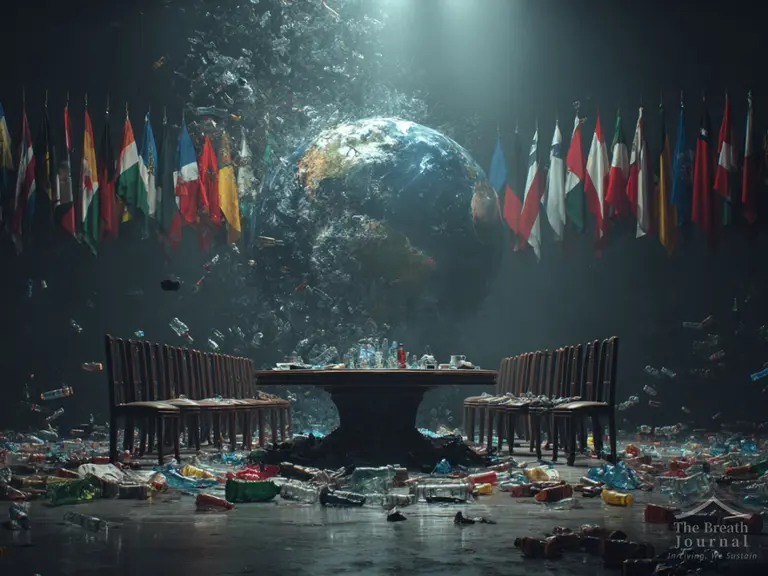
The international community's journey to end plastic pollution has once again hit a snag. Following the 5th Intergovernmental Negotiating Committee (INC-5) held in Busan last year, the additional negotiations (INC-5.2) concluded in August also failed to produce a concrete agreement, leading the Plastic International Agreement (INC) into an uncertain drift.
As negotiations that will determine the fate of plastic, which has become humanity's worst environmental disaster, are stuck in a stalemate, international concerns are growing.
The biggest obstacle to the negotiations remains whether to mandate a reduction in plastic production itself. Interests among countries are sharply divided over this core issue, preventing any progress.
The 'Friendly Countries Coalition (HAC)', which includes over 120 countries, including the European Union (EU), insists that legal binding must be imposed on production reduction. They argue that recycling technology alone cannot handle the exponentially increasing plastic waste.
They particularly emphasize the seriousness of the microplastic issue, stating that strong controls must be implemented from the production stage of primary plastic polymers, which is the root of the problem.
In contrast, major oil-producing countries like Saudi Arabia and the global petrochemical industry are firmly opposed. They express strong resistance, fearing that production reduction would have a massive impact on their economies and industries. Instead, they propose 'expansion of recycling' and 'establishment of a circular economy' as alternatives, focusing on enhancing recycling technology and improving waste management systems.
The United States and China, the world's largest producers and consumers of plastic, are also showing a passive attitude towards mandating production reduction, considering the industry's stance.
During the additional negotiation process, some countries faced strong criticism from environmental groups for using procedural issues to delay the negotiations. There are also ongoing concerns that strong lobbying from the petrochemical industry is behind the failure of the negotiations.
The drift of the international agreement is adding uncertainty to the domestic industry as well. While immediate strong regulations have been avoided, the long-term transition to a circular economy system is an unavoidable global standard.
Companies urgently need proactive efforts to seize the recycled raw material market and transition to a sustainable industrial structure. Expanding R&D investment in recycling technology and adopting eco-designs that facilitate reuse and recycling have become a matter of survival, not just choice.
The international community's promise of when it will establish a turning point for a sustainable future for the Earth and humanity is being closely watched by the world amid concerns about the next steps.


![[Scenario] 2026 Global Wildfire Calendar: The Unending Cycle of Flames](https://cdn.breathjournal.com/w400/q80/article-images/2025-10-01/83cbd0d7-c7c9-4101-b4f6-e39cff028d87.png)

![[Focused Planning] 2026 Global Wildfire Calendar, Facing a Charred Future](https://cdn.breathjournal.com/w400/q80/article-images/2025-10-01/5be639f5-d684-4605-acb1-e0127c554e7c.png)

댓글 (0)
댓글 작성
댓글을 작성하려면 로그인이 필요합니다.
로그인하기